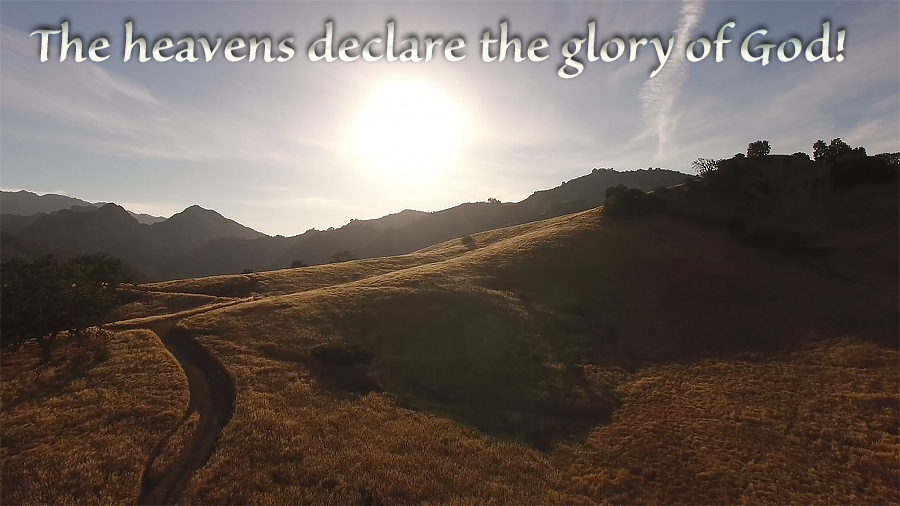The heavens declare the glory of God,
the skies proclaim the work of his hands.
Day after day they pour forth speech;
night after night they reveal knowledge.
They have no speech, they use no words;
no sound is heard from them.
Yet their voice goes out into all the earth,
their words to the ends of the world (Psalm 19:1-4).For since the creation of the world God’s invisible qualities — his eternal power and his divine nature — have been clearly seen, being understood from what has been made, so that people are without excuse (Romans 1:20).
How do we speak into the heart of a culture growing increasingly more secular with each new generation?
How do we begin a conversation about Jesus with someone who does not have trust in the reliability or authority of Scripture?

Can those of us who are older admit that people in our generation can be book snobs who dismiss the here-and-soon-gone chains of snaps on Snapchat®, images and videos on Instagram®, and 140 character jottings that inhabit Twitter®? That most of us came to trust truth being delivered in book form rather than story, art, music, dance, or nature? That we leveraged all of our abilities to influence others based on their acceptance of the Bible as the beginning point of truth?
Even for older generations, however, music conveyed an emotional truth that words alone could never carry. Memories and stories from hard times defined us in ways that are hard to describe. Shocking events in history, with their cadences of words and emotions (e.g., “a day that will live in infamy”). Shocking news clips on the evening news (e.g., pictures of the dead young soldiers in the rice paddies in Southeast Asia). The twisted etchings in the sky as Challenger's solid rocket boosters mocked our shock, horror, and sorrow. We also remember moments our hearts and minds captured (e.g., the tiny fingers of our first child wrapping around our own or the look of love in our spouse's eyes as we married). Deep inside ourselves, we know that truth is found in many things that words alone cannot carry or convey!
Scripture emphasizes:
ALL of these are tools God uses to speak truth into the lives of seekers. Nevertheless, many of us get hung up on the Book and rules and how many angels can dance on the head of a pin. Please don't mistake what we’re saying: we DO believe in the importance, power, and truth of God’s Book! But, if God’s servants throughout the ages used other means to connect to seekers, then shouldn’t we? If God gave us examples and samples of truth in such a variety forms, then shouldn't we honor him by doing the same?

So let’s ask two questions today now that we have shared several sessions together focusing on creation as it is revealed in Scripture:
- Where do you see God in the beauty of creation?
- How do we leverage beauty found in art and in creation to help seekers hear the voice of God calling them to his grace?
In a high-tech world that is image-rich, we must think in images, beauty, and emotion, not just words alone. Notice how James emphasizes in today’s video how “art-centric” his life was before becoming a follower of Jesus. He makes clear that before becoming a Christian, his views on life, politics, meaning, values, who God was, the place of sex in life, and many other foundational beliefs were all shaped by the arts and by modern media. He uses the example of archaeologists learning how a certain culture behaved by looking at the art of that age. One especially insightful comment James makes in this video is this: “The content we consume shapes who we are as people.”
How do we bring God’s truth to those growing up in this culture. Let’s think about that as we share in today’s video session and then come back for some questions for reflection and discussion:
How should we use the arts to listen and also reach into the world of today’s emerging cultures?
James challenges us to use art, the beauty of creation, music, and media to share Jesus — to help others know that Jesus can speak life into their hearts, meaning into their lives, and purpose for their future. But how? How do we leverage these things?
How do we leverage the arts to point to God?
How do we leverage creation to cry out for the Creator to be the guiding force in our lives? How do we, as James put it, learn to “connect with people on a deeper spiritual level” through arts, beauty, and creation?
One is to do what this video seeks to do: value those who use art to share Jesus. To value the creatives among us and not ignore them or dismiss them as strange or shove them to the side.
Another is for us to go back to the Psalms. While we are familiar with Psalm 23, there are many other pastoral psalms that speak about meeting God in nature. Take a minute and read Psalm 8 and Psalm 19. Notice how the psalmists unabashedly talk about God speaking through nature to show his glory, remind us who we are, affirm the Creator’s constant care for us, and many more messages.

So, here’s the challenge for us this week. Let’s take time each day to explore God’s message to us in Creation or the arts. That means purposely spending some time listening and looking for God’s messages to us through these mediums. Then, let’s try to find someone under thirty — a friend, a friend of our kids, a co-worker, a fellow student, or whatever — and ask them how God speaks into their life? If they don’t understand that question, or don’t believe in God, then a follow-up question might be, “What speaks truth into your life, so you know what values to pursue with your life?” Another question might be, “What does the beauty and enormity of our universe say to you?”
Before we are going to be better able to speak truth into a changing world, we are going to have to take some time listening to the hearts of the people who live in our changing world. We must learn to see things through their eyes so that we can understand what speaks to their hearts. The importance of this approach is seen in the all-knowing God entering human flesh and living with us (John 1:1-18). He came so that we can know God understands us — not just because he is the all-knowing God, but because he lived in mortal flesh and faced the kinds of challenges we face (Hebrews 2:14-18; Hebrews 4:16-18).
Let’s take the time to not let the challenges of today’s video end, but see it as an invitation to do exactly this...











Reader Comments
Archived Facebook Comments